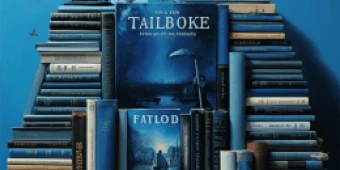The Best 11 Must-Read Contemporary Books

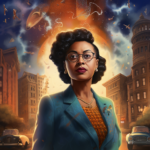
The Immortal Life of Henrietta Lacks
by Rebecca Skloot
Description“The Immortal Life of Henrietta Lacks” by Rebecca Skloot uncovers the remarkable story of Henrietta Lacks, whose cells—taken without her knowledge in 1951—became one of the most important tools in medicine, vital for developing the polio vaccine, cloning, gene mapping, and more. Henrietta’s cells, known as HeLa, have contributed immensely to scientific advancements, yet her family remained unaware and uncompensated. Writing an essay on this book provides a unique opportunity to explore themes of ethics in scientific research, the intersection of race and medicine, and the human stories behind scientific progress, making it a profoundly educational and thought-provoking subject.
- The Ethical Issues in "The Immortal Life of Henrietta Lacks"
- Ethical Issues in "The Henrietta Lacks Case"
- Ethics of Human Research and Informed Consent in "The Immortal Life of Henrietta Lacks"
- "The Immortal Life of Henrietta Lacks": Ethical and Racial Issues
The Theme of Ethics in "The Immortal Life of Henrietta Lacks"
"The Immortal Life of Henrietta Lacks" - Book Review

Gone Girl
by Gillian Flynn
Description“Gone Girl” by Gillian Flynn is a gripping psychological thriller that delves into the complexities of marriage, media manipulation, and the facades people maintain in their relationships. The story revolves around the disappearance of Amy Dunne and the subsequent suspicion that falls on her husband, Nick. Writing an essay on this novel offers a rich exploration of modern marriage dynamics, the psychology of its characters, and the influence of media on public perception. It’s a compelling opportunity to analyze themes of identity, deception, and the dark sides of interpersonal relationships, making it a captivating subject for literary analysis.
- Amy's Feminist Manifesto in The Movie "Gone Girl"
- Analysis of Amy and Nick's Use of Persuasion in "Gone Girl"
- Psychological Analysis of Amy Dunne from "Gone Girl"
- A Review of The Film "Gone Girl"
Film Analysis in "Gone Girl" Essays
Other "Gone Girl" Essay Samples

- The Ban of The Exceptional Novel "The Hate U Give"
- The Interpretation of Tragedy in "The Hate U Give"
- Literary Analysis of "The Hate U Give"
- Starr’s Approach on "The Hate U Give"
"The Hate U Give" Essay Samples
Racism and Discrimination in "The Hate U Give"
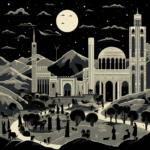
- Marjane Satrapi's Novel "Persepolis": Theme
- The Theme of Martyrdom in "Persepolis"
- A Theme of Loss of Innocence in "Persepolis" by Marjane Satrapi
- A Theme of Oppression in Marjane Satrapi’s "Persepolis"
- The Power of Religion Compared in "Persepolis and "The Sound of Waves"
- The Detrimental Effects of Consumerism and Religion in "Persepolis"
- A Theme of Religion in "Persepolis" by Marjane Satrapi
- Islamic Revolution and a Theme of Religion in "Persepolis"
- The Themes of Diaspora, Belongingness, and Religion in "Persepolis"
- Islamic Religion and The Character of God in "Persepolis"
"Persepolis" Themes Essay Samples
Essays on Theme of Religion in "Persepolis"
About Women in "Persepolis" Essays

Fun Home: A Family Tragicomic
by Alison Bechdel
Description“Fun Home: A Family Tragicomic” by Alison Bechdel is a graphic memoir that intricately explores themes of family, sexuality, and identity. It recounts Bechdel’s childhood and her relationship with her father, a complex figure who was a funeral home director and a high school English teacher. The book delves into her personal journey of self-discovery, especially regarding her sexual identity, paralleled with her father’s concealed homosexuality. Writing an essay on “Fun Home” offers the chance to analyze its rich, layered storytelling and the use of the graphic novel format to convey deep emotional narratives, making it a compelling subject for literary and cultural studies.
- "Fun Home": Turning a Tragic Childhood into a Hit Musical
- The Portrayal of Father/Daughter Relationship in "Fun Home"
- "Fun Home": Two Key Scenes Analysis of Ambiguity
- Illustration and Text Interaction Modes in "Fun Home"
"Fun Home" Essay Topics
Theme of Identity in "Fun Home"

Americanah
by Chimamanda Ngozi Adichie
Description“Americanah” by Chimamanda Ngozi Adichie is a profound novel that explores the themes of identity, race, and the immigrant experience. It follows the story of Ifemelu and Obinze, young lovers from Nigeria who face different paths when Ifemelu immigrates to the United States. The novel provides a rich narrative on the nuances of race and the complexities of adapting to a new culture while maintaining one’s identity. Writing an essay on “Americanah” offers a chance to delve into its nuanced portrayal of the immigrant experience in the Western world and the intersectionality of race, culture, and identity, making it an enlightening subject for critical analysis and discussion.
- Americanah: The Struggle of Shaping an African American’s Identity
- Exploring America’s Identity Subjugation in "Americanah"
- Gender Inequality and Class Privileges in "Americanah"
- How American-born Chinese are Faced with Racism in "Americanah"
- An Issue of Ethnocentrism in "Americanah"
- Analysis of Culture Collision in "Americanah"
- How Hair and Power Are Interwoven in "Americanah"
- Depiction of Main Characters of "Americanah" Novel
"Americanah" - Identity Essay Samples
Various "Americanah" Essay Topics

Station Eleven
by Emily St. John Mandel
Description“Station Eleven” by Emily St. John Mandel is a post-apocalyptic novel that weaves together the lives of several characters before and after a devastating flu pandemic. The narrative explores themes of survival, the endurance of culture and the human spirit, and the connections between individuals in a fractured world. Writing an essay on “Station Eleven” allows for an exploration of how art and human relationships persist and evolve in times of crisis. It also offers a chance to examine the book’s unique structure and the intersections of past and present in shaping our understanding of civilization and resilience, making it a thought-provoking topic for analysis.
"Station Eleven" Essay Samples

The Nightingale
by Kristin Hannah
DescriptionThe Nightingale” by Kristin Hannah is a gripping novel set in World War II France, focusing on the lives and resilience of two sisters, Vianne and Isabelle, as they face the horrors of war. The novel delves deeply into themes of family, sacrifice, and the often-overlooked role of women in war. Writing an essay on “The Nightingale” provides an opportunity to explore the complexities of human emotions and relationships under extreme circumstances, and to analyze the portrayal of women’s strength and resistance during wartime, making it a rich subject for literary analysis and historical reflection.
"The Nightingale": Essay Topics
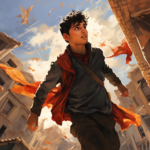
The Kite Runner
by Khaled Hosseini
Description“The Kite Runner” by Khaled Hosseini is a moving story of friendship, betrayal, and redemption set against the backdrop of Afghanistan’s tumultuous history. The novel follows the intertwined lives of Amir, a privileged boy, and Hassan, the son of his father’s servant, highlighting deep themes of guilt, loyalty, and the scars left by childhood choices. Writing an essay on “The Kite Runner” allows for an exploration of complex moral dilemmas, the impact of political and social upheaval on personal lives, and the journey towards atonement. This makes it an enriching topic for discussions on character development, cultural context, and the human capacity for forgiveness.
- The Kite Runner and "Hamlet": Internal and External Conflict
- Comparison Between Novels "The Kite Runner" and "Still Alice"
- The Concepts of Fate and Free Will in "The Kite Runner" and Oedipus
- Comparing "The Kite Runner" and "Where There's a Wall"
- The Issue of Concordance in "The Kite Runner" and "The Communist Manifesto"
- Emotional Intertextuality Between "Death of a Salesman" and "The Kite Runner"
- Theme of Betrayal in "The Kite Runner" by Khaled Hosseini
- The Main Themes of Khaled Hosseini's "The Kite Runner"
- The Theme of Maturity in "The Kite Runner" by Khaled Hosseini
- A Study of The Theme of Redemption in "The Kite Runner"
- Rahim Khan's Influence on Amir in "The Kite Runner"
- Amir’s Quest for Salvation in "The Kite Runner"
- Analysis of The Character of Assef in "The Kite Runner"
- Amir's Betrayal in "The Kite Runner"
Comparison of "The Kite Runner" with Other Works
"The Kite Runner" Themes Essay Samples
Сharacter Aanalysis in "The Kite Runner"
"The Kite Runner"- Q&A

The Road
by Cormac McCarthy
Description“The Road” by Cormac McCarthy is a post-apocalyptic novel that tells the story of a father and his young son as they journey through a barren, ash-covered landscape. Set in a world devastated by an unspecified cataclysm, it explores themes of survival, the bond between parent and child, and the remnants of morality in a decimated civilization. The novel’s stark, minimalist style and its exploration of human resilience in the face of utter despair make it a profound subject for discussion on the nature of humanity and survival.
- A Cruise to Maturity in "The Road"
- Analysis of Optimism in Cormac McCarthy’s "The Road"
- Cormac McCarthy's Depiction of American Society in "The Road"
- Family and The Role of Parent Figures in "The Road"
- Exploring McCarthy's Vision: A Deep Dive into "The Road"
- The Double Death of Humanity in Cormac McCarthy's "The Road"
- Journey Motif in American Literature: Unveiling Paths of Self-Realization
- Climactic and Anti-Climactic Elements in Iconic Literary Works
- The Use of Literary Devices to Establish Main Themes in 'The Road'
- Unorthodox Use of Punctuations in 'The Road'
Explorations in "The Road" Essay Samples
Literary Motifs and Techniques in "The Road" Essays
"The Road"- Q&A
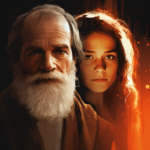
- Lois Lowry "The Giver": Book Review
- Literature Review: "The Giver"
- A Review of Lois Lowry's Book "The Giver"
- Plot Summary of "The Giver" by Lois Lowry
- Understanding Emotions and Feelings in "The Giver" by Lois Lowry
- Lois Lowry's "The Giver" as a Warning for Contemporary Society
- The Concept of Being Grateful in "All Summer in a Day" and "The Giver"
- Themes of Memory and Mortality in "The Giver"
- Overcoming Adversity in "The Giver" by Lois Lowry
- The Theme of Hope in Louis Lowry Novel "The Giver"
About "The Giver" in Essay Samples
Themes and Concepts in "The Giver"
"The Giver"- Q&A

- Instructions Followed To The Letter
- Deadlines Met At Every Stage
- Unique And Plagiarism Free



